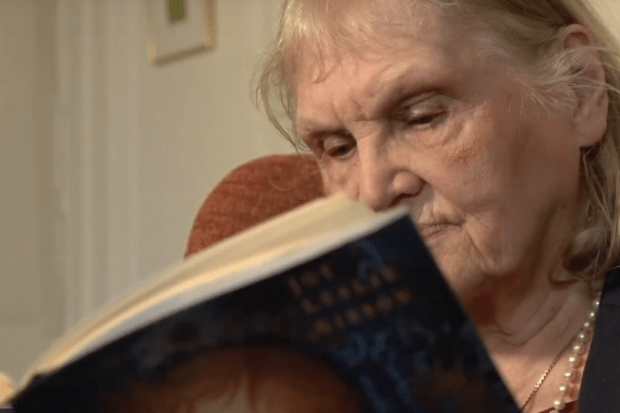Having your PhD thesis published as a book is an ambition held by scholars of all ages. And, just seven years short of her 100th birthday, Joy Leslie Gibson is no different.
Last year, the Shakespearean scholar became one of the UK’s oldest PhD recipients when, at the age of 92, she was awarded a doctorate from the University of Birmingham’s Shakespeare Institute, which is based near her home in Stratford-upon-Avon.
Although delighted to be able to call herself “Dr Gibson”, the 93-year-old told Times Higher Education how she is frustrated that a condition of gaining her doctorate is placing her thesis – on forgiveness and repentance in early modern drama – on the university’s open-access thesis repository.
That has made it almost impossible for her 72,000-word thesis to be picked up by a commercial publisher, said Dr Gibson. “If you ask publishers about this, they all say: ‘No PhDs’,” she explained.
“I wouldn’t mind if they gave you five years before putting it online, but if it goes up immediately then you can understand why publishers are not interested,” added Dr Gibson, whose published works include a 1986 biography of Sir Ian McKellen and Squeaking Cleopatras, published in 2000, which examines how boy actors were used in Elizabethan drama to play female leads.
“You don’t make much from publishing academic books, but I get about £100 a year in lending rights from my book on Elizabethan boy players,” explained Dr Gibson, who believed her situation raised an important issue of “intellectual copyright”.
Hundreds of PhD theses published since 2009 are currently hosted on Birmingham’s online portal, with some being downloaded tens of thousands of times. The UK’s EThOS e-theses service, run by the British Library, hosts more than 500,000 theses.
Despite this quibble with her institution, Dr Gibson has praised its Shakespeare Institute for its “superb” support during her doctorate – which caps a remarkable university education that has seen her gain six degrees, including two MPhils and an MLitt, since the age of 59.
“I was offered a place at the London School of Economics when I was 18, but it was 1945 and at the end of the war the government said all university places should go to ex-service people,” explained Dr Gibson, who instead took a diploma in music and drama before embarking on a career as a journalist, where she wrote for Vanity Fair and various women’s magazines.
“I always regretted not having a degree and, when I was in my 50s, my mother suggested I do an Open University degree,” she explained. “I eventually took a BA at North London Polytechnic [now London Metropolitan University] and an MA at Sussex University before doing my MPhil,” she added.
“Thanks to my Shakespeare studies, I met people from all over the world and have friends in their 20s,” said Dr Gibson, who has divided her time between the library and the theatre, where, until recently, she has taken part in several plays and worked backstage and in the box office.
“It has given such joy and interest to my last 30 years,” she said.
Register to continue
Why register?
- Registration is free and only takes a moment
- Once registered, you can read 3 articles a month
- Sign up for our newsletter
Subscribe
Or subscribe for unlimited access to:
- Unlimited access to news, views, insights & reviews
- Digital editions
- Digital access to THE’s university and college rankings analysis
Already registered or a current subscriber? Login








